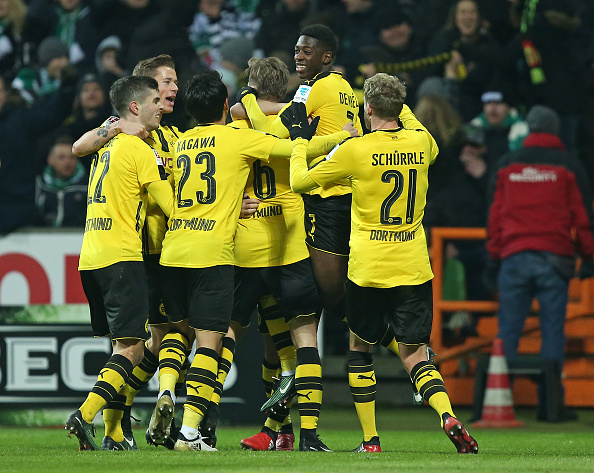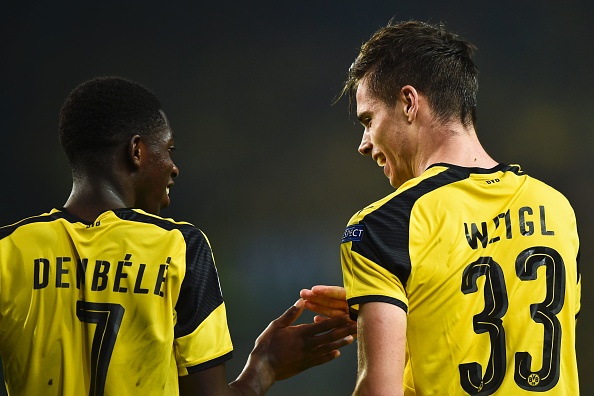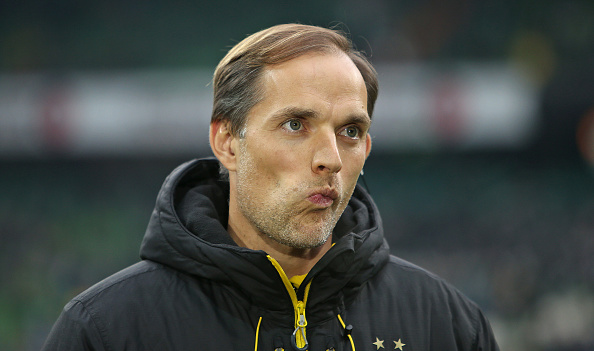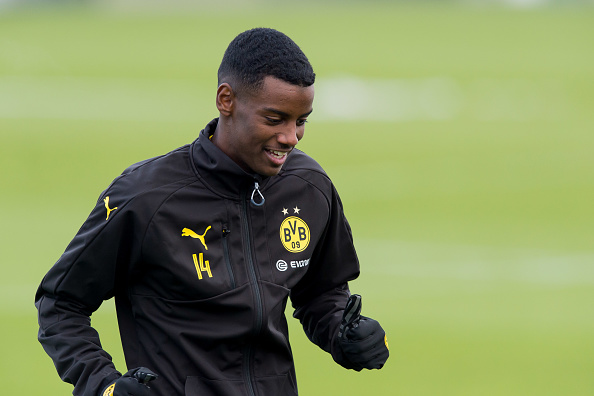
Tuchel's Toddlers: Will they grow up to conquer Bavaria?
Having regenerated talents like Marco Reus and Robert Lewandowski over the years, Borussia Dortmund have attained the reputation of being one of Europe's hottest breeding grounds. The club place great emphasis on youth development and they're drawing envy from the continent's other big sides at the moment, having just persuaded young starlet Aleksander Isak to put pen to paper on a long-term deal with the club.
The 17-year-old Swede likened to his national counterpart Zlatan Ibrahimovic, claimed, "I had some offers on the table but it felt like Dortmund was the right place for me as a young player to develop." There's certainly evidence to back up Isak's claim, who will join an already mouthwatering youthful contingent comprised of Julian Weigl, Ousmane Dembele and Christian Pulisic to name but a few.
The latter himself just signed a contract extension to stay put at the Signal Iduna Park until 2020, despite being the subject of interest from a host of other big clubs. It really is a testament to the fine development set-up in place in Dortmund, but will Tuchel be able to keep the group together for long enough and will they be able to shrug off the temptation of joining a bigger club in the future? Let's take a look...
The Treacherous Trio
So far this campaign, Dortmund’s Julian Weigl and Ousmane Dembele have been first-team regulars, whilst Christian Pulisic also racked up 13 appearances prior to this weekend's action.
The 21-year-old Weigl currently has the second highest league performance score of any other Dortmund player this campaign, according to ‘Squawka Statistics’, having maintained an average pass accuracy rate of 91% and an average of four defensive actions per game.
Dortmund’s youngsters are traditionally mobile and attack-orientated, but Weigl is the future of the club’s defensive midfield, potentially able to supersede the long-serving Sven Bender. Weigl could add steel to a youthful crop dominated by flair.
Further forwards, Ousmane Dembele is undoubtedly one of the continent’s most lethal front-men at present, having scored four goals and made seven assists in the league this term. The Frenchman is incredibly quick in possession, and has great ball control and a very strong finish, drawing comparisons with national counterpart Alexandre Lacazette and fellow Dortmund player Aubameyang.
Given Dortmund’s electric, fast-paced style of play, a quick and agile forward like Dembele is crucial for future plans.
Along with strength through the middle, up-top and further back, Dortmund will also require whippy wide men in the future and Christian Pulisic’s versatility means he is adept at playing on either flank. The American has two goals to his name this season and is growing in prominence in the Bundesliga, having only made his first-team debut a year ago this month.
He possesses an excellent head, great dribbling skills and a good eye for a pass.
Overall, the three all embed the potential to themselves steer Dortmund to supreme success, especially if the tactful Tuchel remains at the helm to guide them.
Tuchel’s Tactics
The glaring problem for Dortmund this season has been consistency, a sentiment summed up by the boss himself in the wake of their defeat to Eintracht Frankfurt late last year. “I have to say our season is full of ups and downs, and it’s not satisfactory,” claimed Tuchel.
Navigating a way around this inconsistency could well prove to be the key to a successful and sustainable future for the club, and a long reign for Tuchel.
The former-Mainz manager sought success almost immediately when he initially took over from Klopp, starting last campaign well following a dismal 2014/15 season for the club. Tuchel brought with him a ‘Plan B’, which Klopp’s Dortmund never really had.
The team alternates between 4-3-3, 4-3-2-1 and 4-3-1-2 set-ups. Tuchel was quick to recognise that a big reason why Klopp’s farewell season was so woeful was because the players simply didn’t have the fitness nor physical capacity to go all-guns-blazing with a ‘Gegenpressing’ approach each week. In short, they burned out.
Although Tuchel hasn’t ditched the fast-paced Gegenpressing approach altogether, he has introduced an alternative method of play involving more midfielders (five as opposed to three) meaning more possession and thus better, more structured build-up play.
Weigl formed a solid partnership with Ilkay Gundogan last term, learning a great deal from his national counterpart and he’s now able to shield the defence single-handedly.
The model is far more sustainable, as the team can employ it over the course of the entire season and, when facing bigger clubs, they can still revert to the older counter-attacking style to which the players are still well-suited.
Tuchel is gradually assembling a young squad, but one which still has experience in its ranks. Partnering the experience of Reus and Aubameyang with the youthful exuberance of Dembele and Pulisic has become important for Tuchel’s approach to the team’s future.
Tuchel is vital to the club’s future success, most obviously because he’s the man who’s brought in certain youngsters, such as Dembele from Rennes, and has been the one to give them their first real sniff of top-flight football. However, he’s also flexible and open-minded, capable of identifying player strengths and weaknesses and compromising enough to recognise when his tactics need changing.
Domination Game?
It’s impossible to ever predict accurately whether or not a team will dominate their league in the future but Dortmund ultimately have everything going for them.
With the successes of Eintracht Frankfurt, Hoffenheim and RB Leipzig this season, it’s clear that Bayern’s indelible stranglehold of the Bundesliga crown is diminishing as the years progress, so there’s room for Dortmund to challenge.
Keeping the group together remains the biggest concern and long-term contracts seem the most obvious solution to this conundrum at present.
If Tuchel is able to stay at Signal Iduna Park for at least another three seasons, that will play a big role in whether or not the players stay on long term; he’ll have greater powers of persuasion than a new gaffer would.
The psychological block, which is typical of a young team will also need sorting out. The team are, one week, able to tear apart Bayern or Real Madrid, but the next, struggle to defeat Frankfurt or a lowly-placed Bundesliga outfit. This may naturally improve with time, but only if the crop stay together, strengthen each season and keep Tuchel on top.



